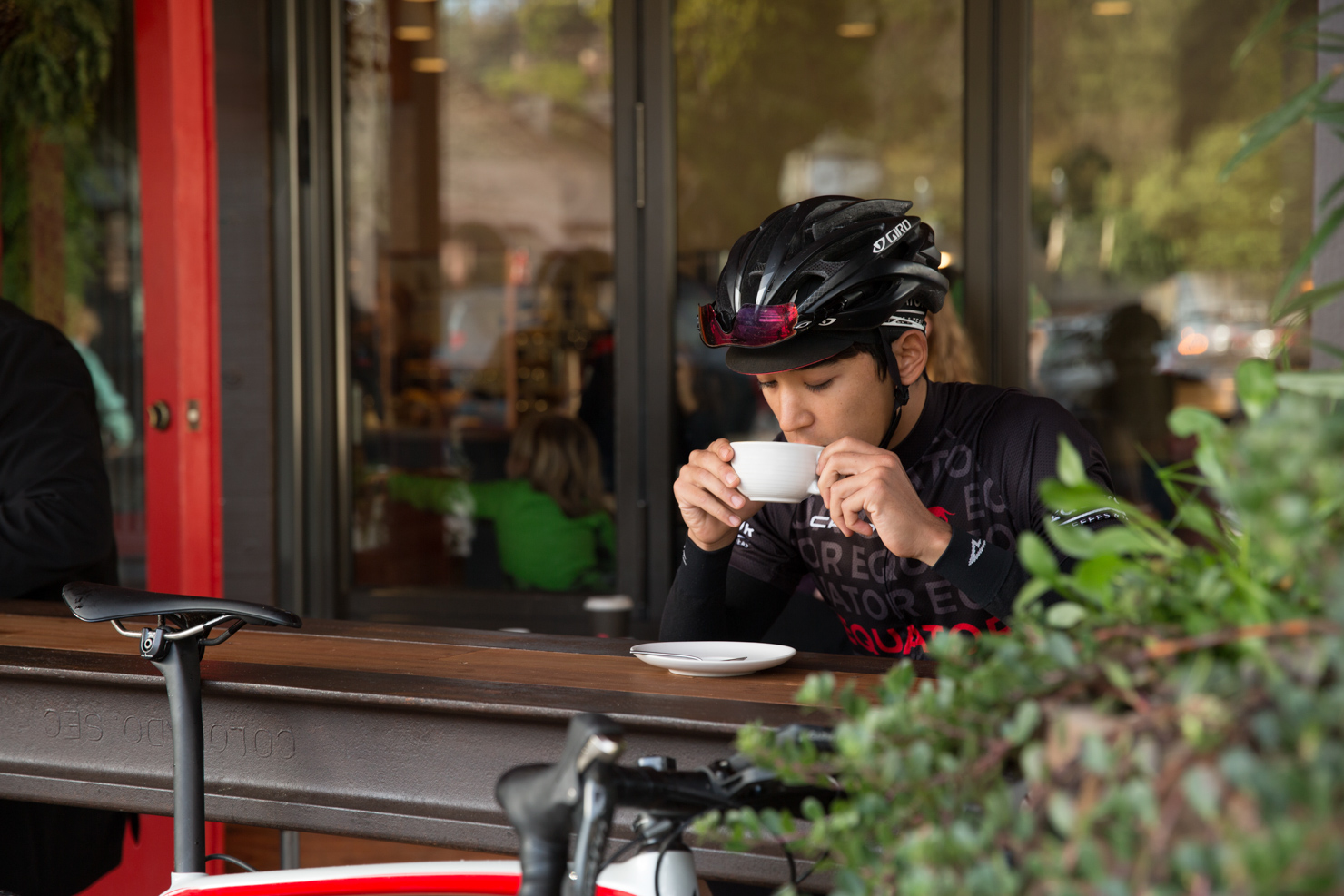
You’re about to get on your bike: water bottles filled, tires pumped, chain lubed, and, finally, for that performance-enhancing drug that makes grinding up endless mountain passes a little easier, you reach for…coffee.
Cyclists, both amateurs and professionals, see coffee as part of their routine. The caffeine elevates the heart rate, expedites blood to muscles, and makes sustained effort less fatiguing. In addition to the physical effects, the mid-ride/post-ride/every-opportunity-possible cafe stop is a ritual among cyclists, who use it as a social destination. This isn’t a new trend—since the 1960s, coffee companies have fostered the interrelated addictions of caffeine and bikes through patronage of competitive cycling teams. Today, companies like Intelligentsia, Equator, and Segafredo are continuing the tradition of coffee sponsorships in the sport of cycling.
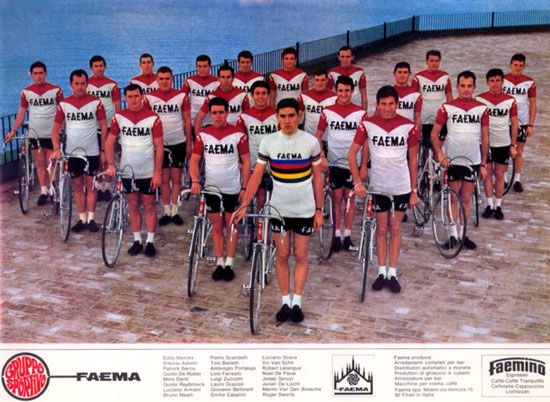
1968 Faema promotional poster (via Lightweight Classics)
The first such sponsorships date back almost half a century. The 1969 Tour de France was emphatically won by Belgian cycling legend Eddy Merckx (aka the Cannibal), riding for the Faema Espresso team. That year, Merckx wore the leader’s yellow jersey for 17 consecutive days before riding into Paris triumphantly, leaving a trail of press coverage for Faema.
Since then, coffee companies like Inoxpran, Café de Colombia, and Saeco have helped carry cycling into the 21st century through their sponsorships; cyclists have sometimes rewarded their sponsors with attention-grabbing behavior. Italian legend Mario Cipollini, aka Il Re Leone (the Lion King), who rode for Saeco from 1996 to 2001, wound up the media with comments such as: “If I weren’t a professional cyclist, I’d be a porn star.” Another time, Cippolini infamously raced in a muscle skin suit, winning notoriety for his sponsors and a heavy fine from race organizers, who frowned on the deviation from uniform.
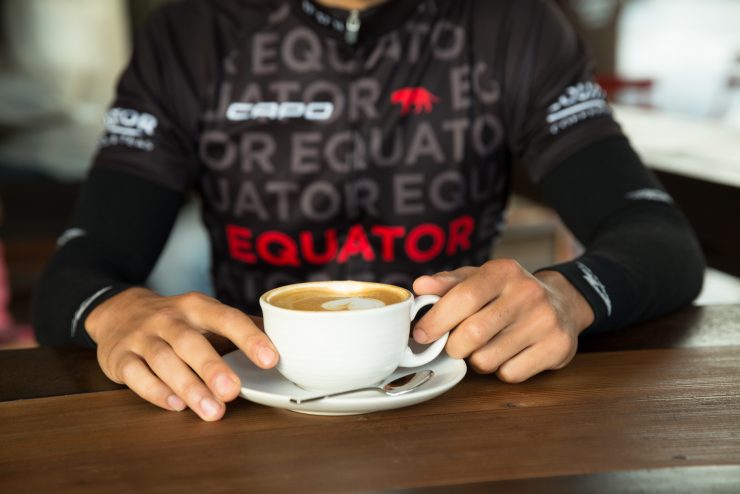
Northern California is home to both a passionate cycling community and a strong coffee culture. For the 2016 racing calendar, Bay Area-based Equator Coffees will continue its ongoing partnership with one of Northern California’s best cycling teams, Mike’s Bikes. Equator provides financial backing for both the women’s and men’s elite teams, and in return get prominent logo placement on Mike’s jerseys and status as a title sponsor: “Mike’s Bikes presented by Equator Coffee.” The bond goes beyond just money, too: Equator is a presence at team cycling events to brew coffee, and supports rides starting from Equator cafes. “Every time they start a ride from one of our cafes, we see new faces who become regulars,” says Retail Operations Manager Devorah Fralach.
In much the same way, it’s important for cycling teams to keep up their end of the bargain beyond just logo placement. “The whole team is great at social media and is always plugging us to their community and fans,” says Fralach. “Their energy is electric. They have a genuine desire to get everyone out and riding, not just their pros.”
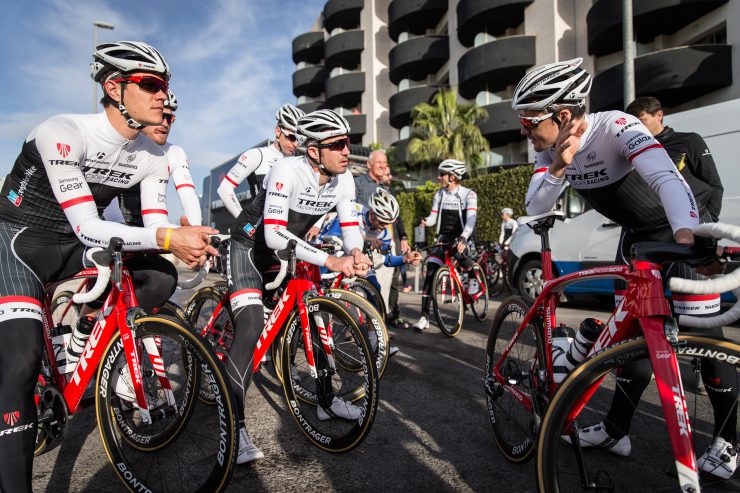
At the highest level of the sport, the kind of backing provided by a cycling team’s sponsorship can make or break the acquisition of an international cycling license. Title sponsors throw in big money (on the order of millions of dollars) to fund budgets that include rider contracts, cross-continental travel, hundreds of nights of hotel stays, mechanics, physicians, and all the other necessities of a professional sports team. This year, Italian coffee giant Segafredo stepped in to finance the Trek Factory Racing Team, now aptly renamed Trek-Segafredo. Segafredo has committed to a three-year co-title sponsorship effective as of January 1. “Everyone who rides knows that there is nothing in the world that goes better with cycling than coffee,” says Joe Vadeboncoeur, vice president of Trek Bicycle. “We are thrilled to welcome Segafredo to the team and are looking forward to racing together in 2016 and beyond.”
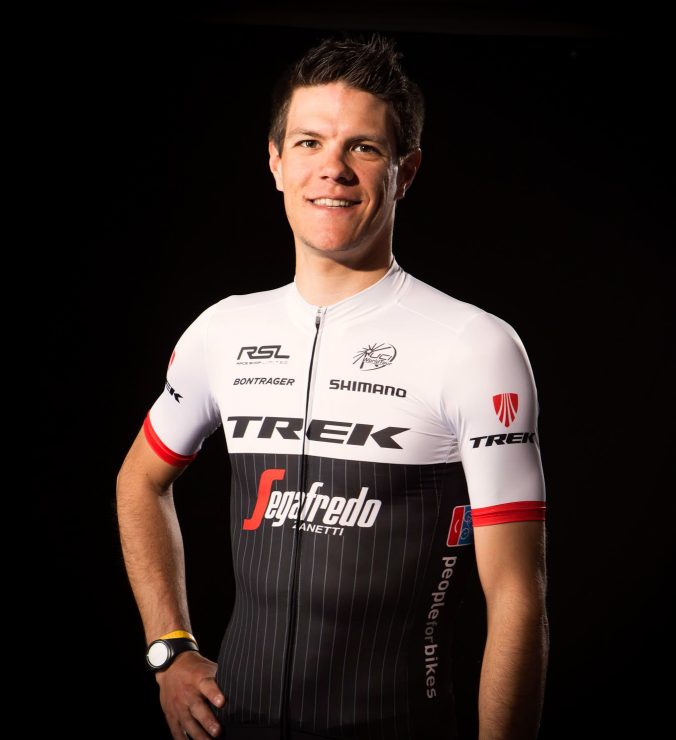
Jasper Stuyven
Cyclist Jasper Stuyven of Trek-Segafredo is possibly the team’s most emphatic coffee lover, operating a Rocket R58 espresso machine out of his house. When he was young, he raced for American team Bontrager/Trek, where he was first introduced to specialty coffee. “When you’re staying at hotels, they don’t always have good coffee, so [the Americans] brought their own coffee: AeroPress, filter, French press… I started to make my own as well,” he describes.
Amid all the traveling, Stuyven seeks out specialty cafes across Europe. Recently, he’s been stopping in at El Último Mono in Malaga, Spain, where he trains in the winter. But it’s not a problem when he doesn’t have time to visit cafes. “With Segafredo,” he says, “we’ll now have access to all the beans and plenty of coffee equipment on the team bus.” For athletes traveling between stages of multiday races, the team bus is home; having a nice coffee setup is crucial.
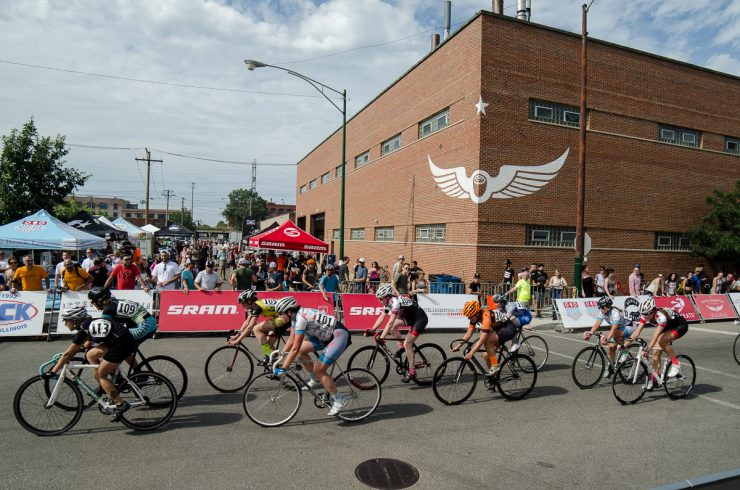
Intelligentsia is another top proponent of cycling-and-coffee partnerships. CEO Doug Zell is an avid cyclist himself and once trained at the Olympic Training Center. Over the phone, Zell discussed the depths of his company’s cycling ventures (he rode an indoor cycling trainer while we spoke). “Once it’s in your blood, it’s hard to get away from it,” he says, vaguely referring to both interests simultaneously. “It’s almost harder [now] to explain how coffee and cycling aren’t connected than how they are.”
It wasn’t that way when Zell set off for college—there was no organized collegiate racing, and for a time, he gave up cycling. Today, Zell and Intelligentsia sponsor the USC Cycling Team and aid other collegiate cycling programs. Closer to home for Zell, the Intelligentsia Cup is a 10-day series of races that is developing nationally competitive racing in the Chicago area. “The last race is actually around our roasting works just west of Chicago, by Goose Island Brewing and just down the street from SRAM [a cycling parts manufacturer],” he continues.
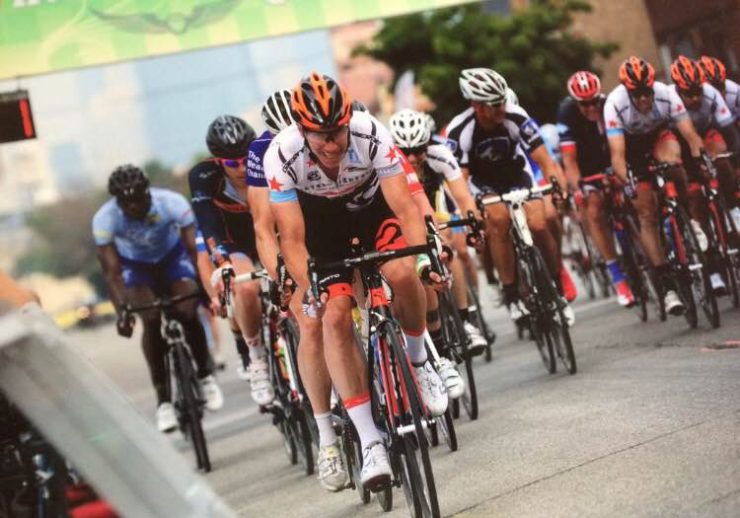
Intelligentsia’s Doug Zell racing.
The big news of the year in the coffee-cycling nexus is Intelligentsia’s title sponsorship of two new cycling teams and continuing backing of the Red Hook Criterium series. Both of the teams will be built around Daniel “Hollywood” Holloway, the two-time defending USA Amateur Criterium Champion. Holloway, along with racers Chad Hartley and Marco Aledia, have been managing the same team for about three years. “Sponsorship is always changing in cycling, which makes things difficult,” says Holloway. Intelligentsia coming on as a title sponsor not only funds one team to race the North American criterium style of racing (multiple laps on a closed-circuit road course), but will also provide support to a team focused on the emerging Red Hook Crit racing discipline (a more highly technical, and dangerous, brand of racing involving brakeless, fixed-gear bikes). “[Intelligentsia’s sponsorship] was a really cool thing to come through for us and the whole team is pretty excited about it,” Holloway continues.
For Holloway, whose year is spent on the road, coffee culture is a nice constant. “When we race as a team, we’re always going to coffee shops wherever we’re at, it’s a ritual. It brings some kind of normalcy to the program that you miss when you’re traveling all over the country. You know the coffee shop is going to be more or less the same wherever you go—the coffee is going to be a little different, the style of the shop is going to be a little different, but that whole atmosphere is very similar. Coast to coast, you know you can sit at a coffee shop and shoot the shit with your friends.”
Mackenzie Champlin is a Sprudge contributor based in Los Angeles. Read more Mackenzie Champlin on Sprudge.
The post Coffee And Competitive Cycling: A Cohesive Bond appeared first on Sprudge.

